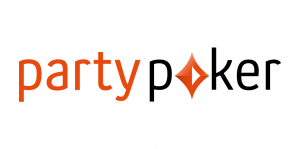partypoker Makes Another Round of Changes to Protect Recreational Players
Continuing an effort that was started nearly a year ago, partypoker has announced a new set of software and policy changes designed to make its online poker room increasingly recreational player-friendly. The moves are closely related to what was implemented last October, focusing on anonymous cash game histories.
Before we address the changes that will go into effect on October 5th, let’s look back at what partypoker did in the middle of October last year. In “Phase One” of the poker room’s attempt to “level the playing field,” it did two things: 1) required players who wished to get on a cash game waiting list to join a room-wide waiting list and eventually be automatically seated, and 2) blocked opponents names until a player has been dealt a hand.
 What these two things did was make it much more difficult – even impossible – for experienced, skilled players using software tools to target weaker players and stalk them around the virtual poker room. Using statistical analysis software, players accumulate data on the opponents they have played (or – contrary to the terms and conditions of most poker rooms – purchase it from data mining sites) and develop profiles on each. The software can see who is at the table, show the user stats on each player via a heads-up display (HUD), and the user can then determine if they want to sit down. Some software can go so far as to search for specific players or specific categories of players (perhaps ones the user marks as weak) and highlight them for the user.
What these two things did was make it much more difficult – even impossible – for experienced, skilled players using software tools to target weaker players and stalk them around the virtual poker room. Using statistical analysis software, players accumulate data on the opponents they have played (or – contrary to the terms and conditions of most poker rooms – purchase it from data mining sites) and develop profiles on each. The software can see who is at the table, show the user stats on each player via a heads-up display (HUD), and the user can then determine if they want to sit down. Some software can go so far as to search for specific players or specific categories of players (perhaps ones the user marks as weak) and highlight them for the user.
With opponents names blocked until a player actually sits and is dealt a hand, this method of targeting specific players won’t work. You can’t target what you can’t see.
As to the first change above, players joining a waiting list, rather than picking individual tables to wait for, had to join a single waiting list for all tables of a certain game, stakes, and size. This put a damper of seating scripts, which is software that not only finds specific prey in the poker room, but also automatically seats the user with said prey. When you aren’t allowed to pick your own table, you can’t use a seating script.
partypoker also stopped making hand histories available for download, instead allowing players to view 12 months of hand histories in the poker client itself.
At the time, Jay Kanabar, partypoker’s Head of Network Operations and Business Intelligence, broke it down simply in an interview with PokerNews:
If I walked into the Bellagio Poker Room in Las Vegas, I could not ask the Card Room Manager, “Who are your worst players? Can you lock me a seat up to the left of one of them? Where do I get the printout of all the hands everyone here has played over the last 6 months? When my juicy seat comes free can you give me a shout, I’m just nipping into Bobby’s Room to take some notes on the hands being played in there!
Which brings us to Tuesday’s announcement on the partypoker blog, detailing what will happen in the second phase of this effort to “to improve the ecology of its poker room and promote fair and ethical gameplay.” Technically, partypoker called the elimination of downloadable hand histories “Phase 2,” but really, that was part of Phase 1. I PROCLAIM THIS PHASE 2…DEAL WITH IT.
Here’s what we’ve got:
• Local hand histories will still be available for download however player screen names will be anonymised
• Players own screen name will be visible, while remaining players will be listed anonymously in download files e.g. Player 1,2,3
• Players will still be able to view the number of hands they have played, win rate and other statistics to help them improve their play.
• The terms and conditions will change will change prohibiting the use of seating scripts. Following these amendments, players using any such software will be initially issued with a warning notice before being banned from using their account
• Alongside these changes, players will be allowed to make a one-off screen name change
As you can see, partypoker has gone back to downloadable hand histories, but has now “anonymized” (or “anonymised,” depending on your country’s use of the letter “z”) them, making it so players can only see their own name. Everyone else who was at the table will simply be numbered. This goes hand-in-hand (no pun intended, but enjoyed) with the Phase 1 changes, as it again makes it basically impossible for someone to use third-party software to track and target specific opponents, as they won’t have data on anyone by name. There will be no way to match up data stored in the hand tracking software with players’ names at the table.
Group Head of partypoker Tom Waters said of these decisions:
It’s important for us to provide all poker players with a fair and ethical product whilst still allowing them to learn and improve. We want partypoker to offer a level playing field that allows players of all abilities to compete fairly. We have listened to feedback from the poker community and believe that allowing players to continue to view their own hand histories is important for their personal game development. Anonymising hand histories will help prevent data mining and therefore protect both the professional and recreational player and improve the overall ecology on partypoker which is imperative for the long term future of the game.
Lots of people use third-party software to track their own play for record keeping and study purposes and, as Waters said, this type of usage won’t be affected. Players will still be able to import all the data on their own hands.
And, where last year’s changes made seating scripts virtually useless, this one makes them explicitly against partypoker’s rules.
As mentioned, these changes are expected to take effect on October 5th and only apply to cash games, not tournaments.



















COMMENTS